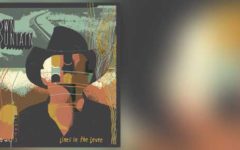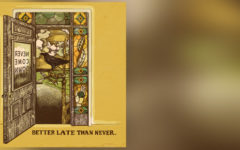
Sturgill Simpson has never lacked for inspiration when it comes to expanding his parameters, one of the qualities that makes him such a unique and engaging artist. While he’s sometimes typecast as an Americana auteur — albeit it one with a wealth of imagination — each of the five albums he’s released since 2014 have found him maintaining success through a series of ambitious undertaking. All bold — although often unpredictable — his sonic sojourns have ranged from classic country to the fringes of pure psychedelia. Along the way, he’s chalked up any number of accolades as well, including several Grammy nominations, and a budding acting career at the same time. It’s little wonder he’s garnered a certain “buzz” factor which makes his every effort eagerly anticipated.
Still, his latest offering, Cuttin’ Grass Vol. 1: The Butcher Shoppe Sessions, may be his most unexpected effort yet. It’s a decided return to the rural roots of his native Kentucky, and a loving look back at the music which presumably inspired him early on. Consequently, some may be surprised that he’s opted to burrow into bluegrass basics, but because it’s titled Vol. 1, there’s every indication that it may be more than a momentary sojourn. Still, with each of these 20 selections — many reimagined versions of songs that featured prominently on his earlier outings — he relays the music both competently and confidently, as if he’s made music like this throughout his entire career. There’s nothing forced or faked here at all, thanks to his ability to maintain quality control and consistency at every turn.
Indeed, perhaps the biggest complement one can offer is simply to say that he sounds like his bond with bluegrass has been a constant forever. Listening to the full fiddling frenzy of All the Pretty Colors, the soaring revelry that accompanies Breakers Roar, and the down-home jubilation that’s so pronounced in Long White Line, Railroad of Sin, and Time After All makes that premise seem convincing enough. Yet what’s even more impressive is the fact that he manages to vary the mood as well as the melodies. Water in a Well,and I Don’t Mind are reflective in both their tone and treatment. Life Ain’t Fair and the World Is Mean belies its title with a honky-tonk-like treatment. A Little Light, given its call and response chorus, sounds as if he’s found an innate Gospel groove.
That said, Simpson gets ample support from a seasoned cast of superior session players, among them Mike Bubb playing bass, Stuart Duncan on fiddle, Scott Vestal on banjo, Tim O’Brien supplying rhythm and lead guitars, and Sierra Hull contributing mandolin. It ensures not only a superior scenario, but one that further confirms Simpson’s credence as one of grassicana’s greats.







